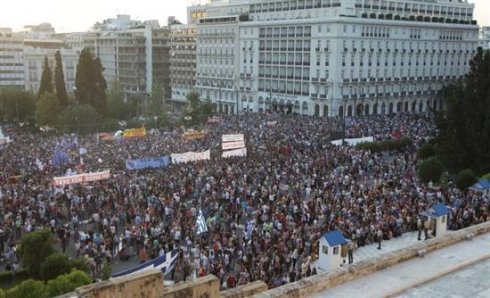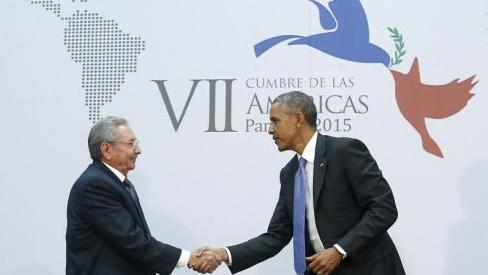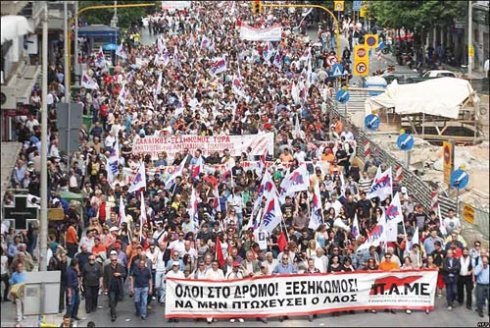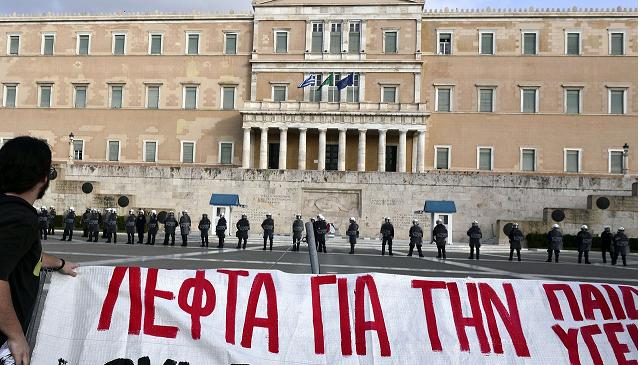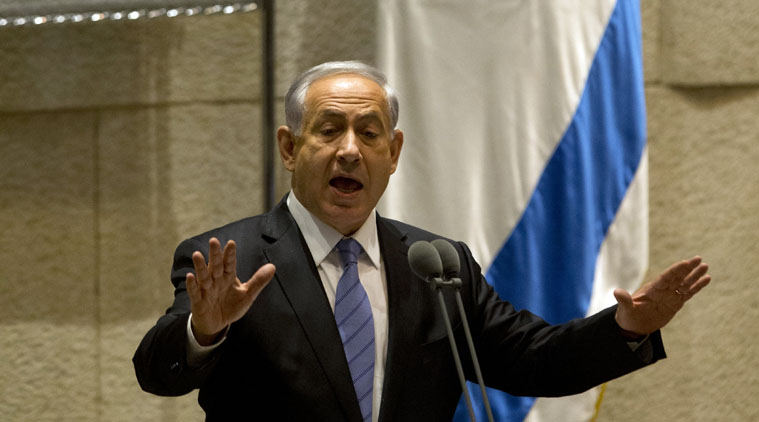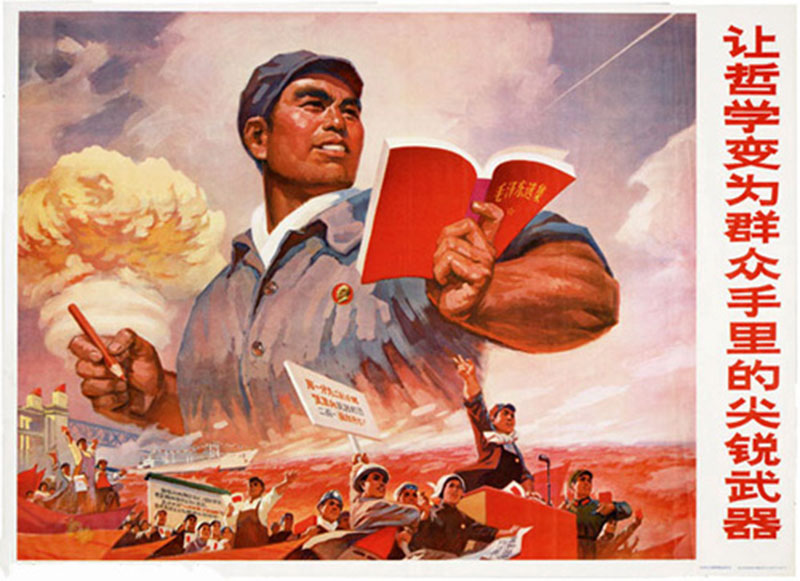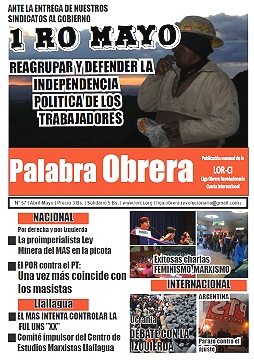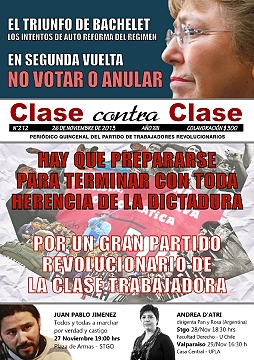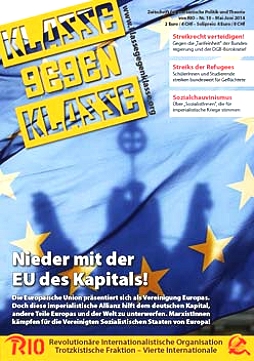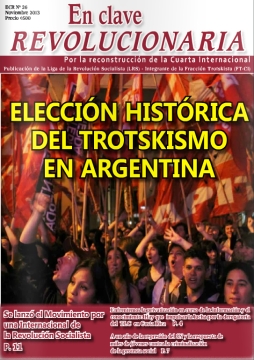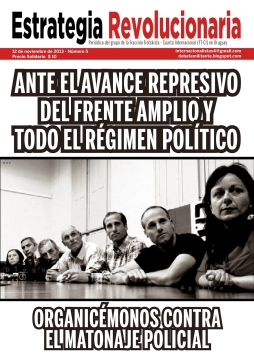THE GUARDIAN - 14-02-2011
Egypt’s army calls for end to strikes as workers grow in confidence
14/02/2011
Ruling military council also appeals for end to political protests while seeking to reassure youth leaders
Egypt’s new military government has appealed for an end to the strikes sweeping the country as workers use their new-found freedom to demand pay increases after years of rising food prices.
Transport, bank and tourism employees were joined by steel, oil and gas workers in stoppages that undermined the army’s attempts to return Egypt to normality after the three weeks of unrest that toppled Hosni Mubarak.
The ruling military council called on Egyptians to go back to work, saying that strikes "damage the security of the country".
"Noble Egyptians, see that these strikes, at this delicate time, lead to negative results," it said in a statement read on state television.
Reuters reported that the army was considering using martial law to ban work stoppages, although that may prove difficult to square with its promises of democratic liberalisation.
In the statement, the army also called for an end to political protests, having forced out the last few hundred remaining demonstrators in Cairo’s Tahrir Square, who had refused to leave until the military stepped aside in favour of an interim civilian administration. Soldiers barred foreign television cameras from filming the operation.
The army sought to reassure youth leaders, who played a leading role in the protests, that it is serious about democratisation by telling them that it will hold a referendum on constitutional changes within two months. But it is not clear who will be making the changes or to what extent they will free Egyptian politics.
The most immediate challenge for the military regime, though, is the unleashing of years of pent-up frustration and anger among workers about rising prices.
More than half of Egypt’s population lives on less than £1 a day. They are heavily reliant on subsidised foods, particularly bread, after sharp increases in the price of staples such as rice and pasta in recent years.
Egypt’s military rulers declared Monday a bank holiday after bank employees went out on strike along with workers in the state-run oil and gas industries, ambulance drivers, textile- and steelworkers and post office employees. Police officers and employees of the culture and health ministries joined the strikes.
Hundreds of Bank of Alexandria workers demonstrated outside its branch in central Cairo urging their bosses to "leave, leave" – the same slogan used in mass protests against Mubarak.
Striking workers in the state-owned Cairo transport authority took to the streets to demand a pay increase and benefits such as free hospital care.
Among them was Ahmed Said, who has worked as a driver for the company for 18 years. His take-home pay is about £60 a month, of which more than half goes on rent. He feeds a family of five on the rest.
"There is just enough money for food. We have meat once a week but not all weeks. Some days we do not eat dinner. If a child goes to the hospital and we have to pay for that, then me and my wife do not have a meal," he said. "This is wrong. How can Mubarak be worth so much and we have so little?"
He said that after years of staying silent out of fear of the pervasive secret police under Mubarak’s rule, he would not now be intimidated. "Before, we had to be careful. We would be arrested. But now we can talk. We need food. We have been on strike four days. The army cannot stop us," he said.
Another transport worker, Hatem Saleh, waved a wage slip that showed he earned E£238 (£25) in basic pay last month, with E£225 (£24) in overtime and bonuses. Again, more than half goes on rent.
Saleh entered the flat he shares with his wife and two teenage daughters, and opened the fridge.
"We have a big fridge, but look, it is empty. What is there? Some vegetables. Not enough vegetables for more than two days. We have some bread. We have not had meat in two weeks because we had to pay some money for my daughter’s school. If we buy clothes, we eat less. How can this be when I have worked for nearly 20 years?" he said.
The food crisis stalked the Mubarak regime for years. Egypt’s attempts to reform its system of subsidised food for the poor, which ate up more of the national budget than health and education, and the government’s decision to encourage the growth of crops for export in place of wheat, contributed to a surge in food prices in recent years.
It came just as demand for subsidised foods increased because people were less able to afford such staples as rice and pasta owing to surging oil and crop prices.
Three years ago, activists organised a series of food protests that in some ways presaged this year’s uprising.
A strike and protests were partly organised by emails, text messaging and the internet, but the government was able to outmanoeuvre them with a 30% pay rise for state workers, and by rounding up some of the organisers and through intimidation.
But Egypt’s new military government faces workers who are no longer so afraid of authority.
